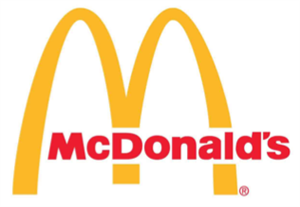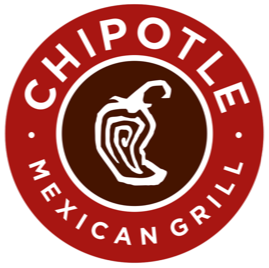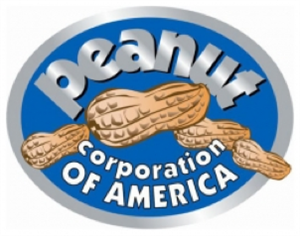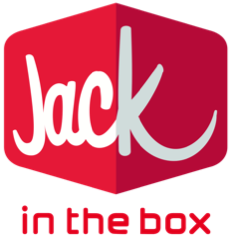Written by SmartSense | Food Safety
Key takeaways
History has a way of repeating itself. Throughout the years there have been many reported national outbreaks and recalls. It’s important for food industry professionals to look back at these instances and use them as learning opportunities to keep their consumers and brand reputation safe.
Outbreaks

1982: McDonalds E. Coli Outbreak
In 1982, E. coli outbreaks occurred in McDonald’s in Oregon and Michigan resulting in 47 reported illnesses across the two states. These outbreaks were not shared with the general public and had significant repercussions for the future of the food industry. Although the CDC and USDA were aware that E. coli could be transmitted through hamburgers, there were no updated guidelines in place to prevent an outbreak.
Lesson
Temperature is critical to managing during food prep to keep consumers safe. When an outbreak occurs, there needs to be clear communication to the public. That way, other organizations can learn from what happened and prevent an outbreak from affecting their establishment.
1993: Jack in The Box E. Coli Outbreak
Following the outbreaks in 1982, the CDC didn’t list E. coli as a reportable disease. In fact, no one had heard of the McDonald’s outbreaks or the recent temperature change for thoroughly cooking hamburgers (140o - 155o). As a result, another, much worse, E. coli outbreak occurred in 1993.
This outbreak affected 73 restaurants spanning across Washington, Idaho, California, and Nevada. In total, 732 people were infected with E. coli, most of which were children. Four children died, and 178 were left with permanent organ damage.
This outbreak had a long-term impact on Jack in The Box. It happened at a time when the company was planning an expansion, but those plans were put on hold as their business suffered from the media backlash from the outbreak. They experienced a total loss of approximately $160 million.
Lesson
Clear communication is crucial for the foodservice industry. Restaurant owners need to stay up-to-date on changes to food safety rules and regulations. Also, training programs should be put in place to ensure employees are maintaining proper safety standards across all restaurant locations.

2015: Chipotle Outbreaks Across the Country
The Chipotle outbreaks of 2015 are among the most well-known foodborne illness outbreaks. There were multiple incidences of E. coli (STEC 026) affecting 55 people. There was also a Norovirus outbreak that affected multiple locations across the country.
The primary reasons for these outbreaks were improper food handling as well as sick employees reporting to work when they shouldn’t.
Lesson
Following temperature protocols for food storage and preparation is imperative for preventing outbreaks. Food should be handled properly at all times, from preparation to the customer. Also, employees should always wash their hands, and should not report to work while sick.

Recent Manufacturing Recalls
Foodborne illness infects more than restaurants. In the last few years, there have been many recalls of food products. The most well-known recalls were those of peanut butter (2009), eggs (2010) and cantaloupes (2011). Over 2,000 people were infected during these outbreaks, and millions of products were recalled.
Lesson
During these recalls many consumers were infected with Salmonella and Listeria. The manufacturing companies suffered the loss of millions of dollars, and a collective total of 42 people lost their lives. At any stage of the food preparation process, food is susceptible to contamination. Safety should be the priority from manufacturing all the way to the consumer.
Though many of these companies have recovered, the outbreaks are regularly discussed with fear. To prevent future outbreaks, organizations need to ensure that they are following correct guidelines and procedures. That includes proper transportation, proper preparation, constant handwashing, being cautious of both biological and chemical hazards, and monitoring stock for quality at all times.
All food safety professionals should keep an eye on the Food Safety Recent Recalls and Outbreaks to ensure their products are safe.
Download our Food Safety Webinar to learn how to protect your restaurant (and your brand) from food safety disasters.
Topics: Food Safety
Other Suggested Posts
How Sales & Operations Planning Decisions Prevent Food Waste in the Supply Chain
Food waste along the wholesale and retail supply chain is often blamed on downstream operations failures. Its roots, however, oftentimes lie upstream. As we ...
How to Improve QSR Operations with IoT-Enabled Tools for Deskless Workers
As the demand for convenient, fast, and quality food continues to rise, small QSR chains face increasing pressure to deliver exceptional customer experiences ...
Why Customer Success Makes the Difference in Your Condition Monitoring Program
If your business objective is to implement an efficient and successful condition monitoring program, gone are the days of “set it and forget it.” Today’s savvy ...
Subscribe to the SmartSense Blog
Stay up-to-date on the evolution of IoT connectivity.



